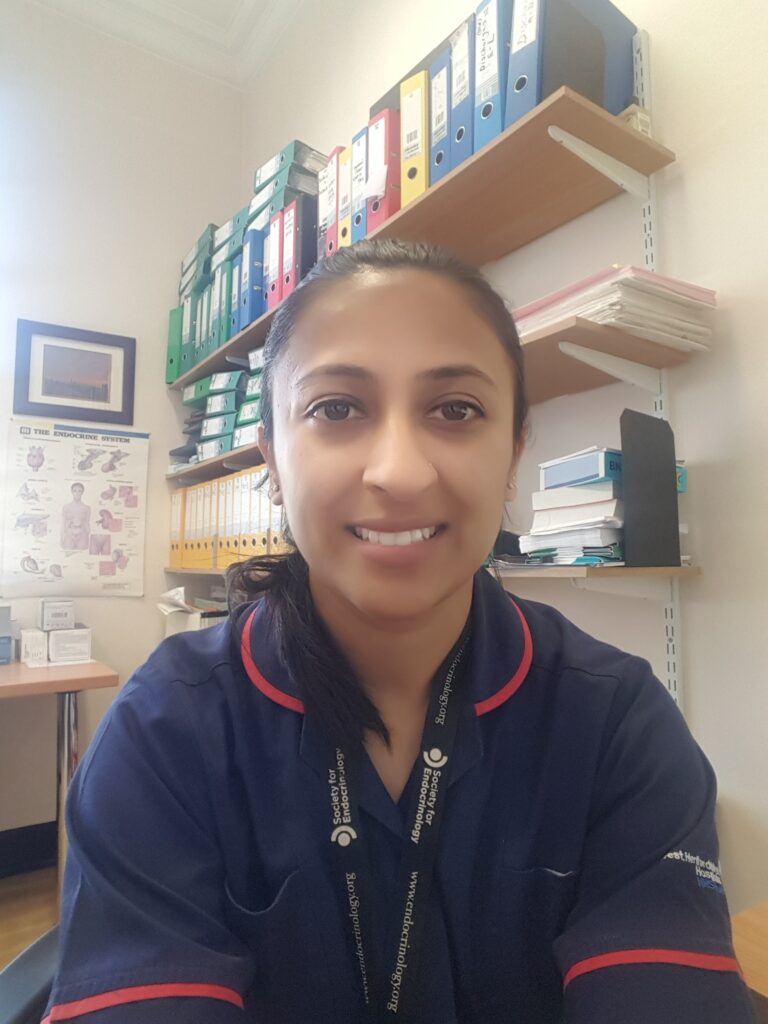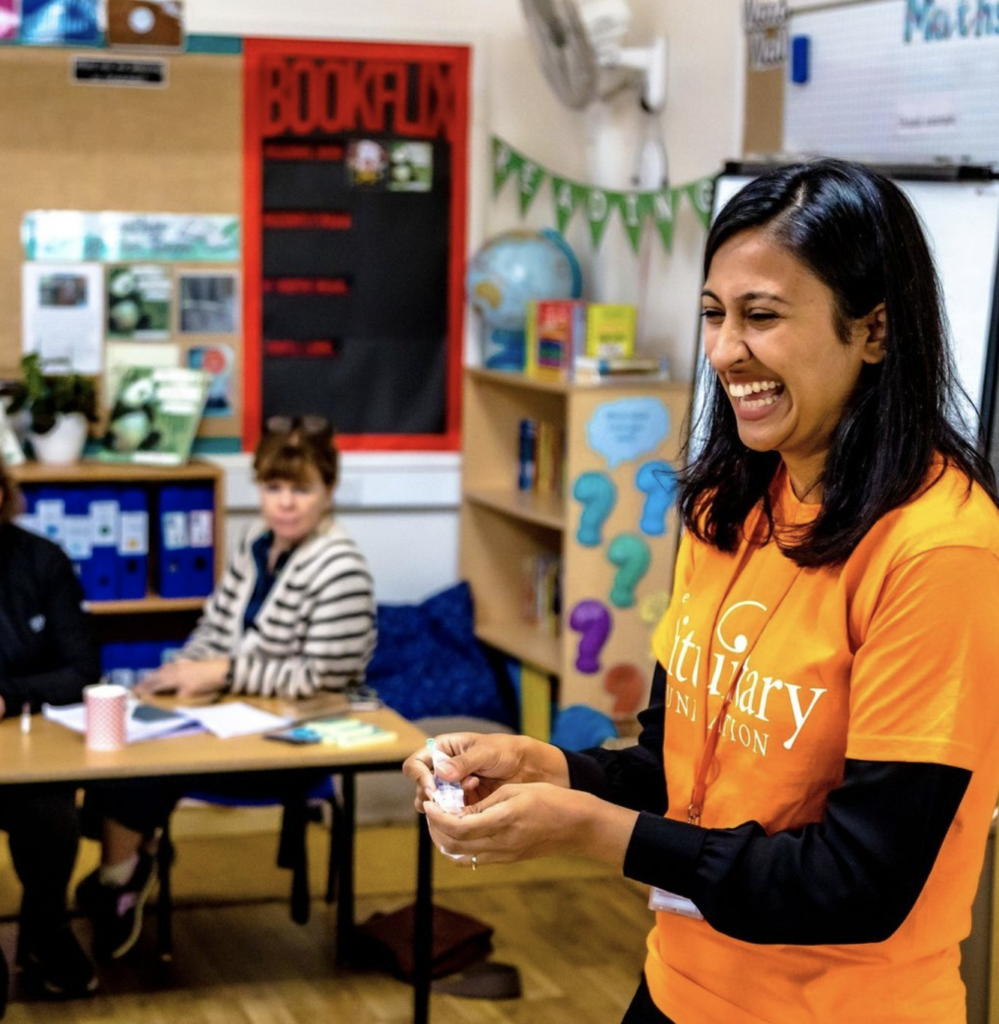For Rare Disease Day 2025, we spoke to our specialist endocrine nurse (ESN), Darshna Patel, to find out how she came to specialise in endocrinology and what motivated her to get involved with The Pituitary Foundation.
Hi, I’m Darshna. I’m a mother of 2 children and originally from Manchester (a true northern lass!). I currently live in London and I’ve been a qualified nurse for over 20 years! I love yoga and enjoy going for walks.
How did you become an endocrine nurse?
I accidentally fell into being an ESN and have never looked back! I was a sister on a busy medical ward where life was fast-paced, before taking on this ‘interesting’ role in 2008 at King’s College Hospital and have since spent the last 10 years at my local district hospital.
I can honestly say I found a wonderfully complex and “rare” area of medicine and supporting those affected by it has been truly fulfilling.

What does your role as an ESN involve?
My role as an ESN is to guide, support and help those affected by endocrine/pituitary disorders. When something is so rare, it’s important to be a good listener to those who have the condition because what is happening to one person, does not happen to all and no one day is the same for those affected. I have said this before and I will say it again, endocrine/pituitary conditions can affect people in their entirety!
As an ESN we aim to promote good health and quality of life for our community, as best as possible.
Why did you decide to get involved with The Pituitary Foundation?
Working in a hospital setting over the years have given me a great insight into helping people with Pituitary / Endocrine conditions. I have worked with some outstanding and world class professionals and have met equally incredible patients who live with this condition. The learning curve has been very steep! But equally rewarding.
During Covid, when the world stopped in its tracks, I felt I needed to give a little more. That’s when I decided to take the role on the helpline as well as my hospital work. It meant that I can still offer an ear of support to people who were navigating their rare condition through a difficult and daunting time.
What does a typical day look like working on the Endocrine Nurse Helpline?
No one day is the same on the helpline and yes, we also have moments where we may not have the answer but the person on the other side of the helpline is always grateful for the time we have given to try and understand.

What do you wish other people knew about how rare diseases impact people?
In this forever changing world, it is wise to reflect on what happens around us and to the people around us. Rare doesn’t mean we should hide or dismiss the ‘unknown’, it just means giving time to understand what it is that makes it rare. I think people who live with a rare condition also want to live a life as anyone else does. The difference is, is that there are often adjustments that people may need to make. Sometimes these are small, multiple adjustments and sometimes they are quite significant. Some happen over the course of their lives and come on gradually and some are difficult. No one is the same and that is something to be mindful and empathetic of.
The Society for Endocrinology and their international counterparts are working together in research and case studies to understand this complex area more and more and with the amazing Pituitary Foundation charity, we can continue to offer support and awareness to the community.
From everyone at The Pituitary Foundation, we want to say thank you Darshna for all you do to support the rare disease community! If you would like to share your story this Rare Disease Day, email [email protected]







